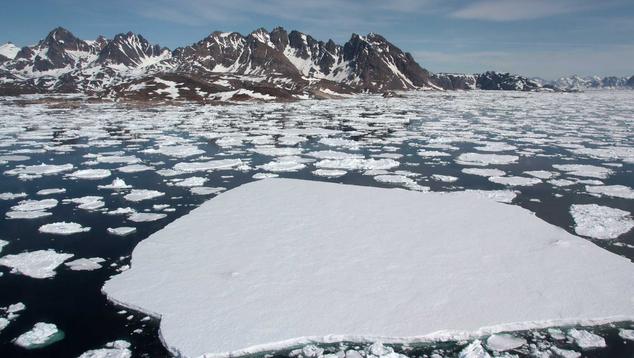Story Highlights
- Six in 10 Americans think global warming’s effects have already begun
- Less than half still say issue will pose a serious threat to their way of life
- Partisan gaps are at or near their widest across three global warming trends
WASHINGTON, D.C. -- U.S. public opinion on four key aspects of global warming has changed little in the past year, maintaining the recent stability in these views.
When asked when the effects of global warming will begin to happen, six in 10 adults, in line with the rate each year since 2016, say they have already begun. A similar percentage of Americans (62%) believe that increases in Earth’s temperature over the past century are due more to pollution from human activities than to natural changes in the environment.
Also consistent with recent years, just under half of Americans (46%) think global warming will pose a serious threat to their way of life in their own lifetime. Meanwhile, the 39% who say they worry a great deal about global warming is down slightly, but not significantly, from 43% last year.
Results in Detail
Aside from the 60% of Americans who think the effects of global warming have already begun, 3% think they will begin in a few years and 8% within their lifetime. Another 17% say they will not happen in their lifetime but in the future, while just 12% say they will never happen.
Altogether, 61% worry a great deal or fair amount about global warming, while 18% worry only a little and 21% say not at all.
Gallup tracks Americans’ views about global warming each March as part of its annual Environment poll. The latest survey was conducted March 1-23.
Public concern and certainty about global warming was generally less pronounced at the start of this century, from 2001 to 2015, than it is today, before increasing in 2016 and 2017. That intensity burst coincided with a number of environmental and political events that could have played a role in the change. Among these were unusually warm winters in 2016 and 2017 and the emergence of Donald Trump as a political figure. The latter may have caused some, particularly Democrats, to fear global warming policies might suffer under his administration.
Since 2017, U.S. concern about global warming may have remained elevated due to reports of there being more extreme weather events as well as the continued global focus on climate change, including by environmental activist Greta Thunberg, who spoke at the United Nations in 2018.
Democrats’ Worry Eases but Still High Compared With Republicans
This year’s slight dip in the percentage of Americans worried a great deal about global warming coincides with larger declines in worry about several other environmental problems such as air and water pollution. The downshift is due to diminished worry among Democrats, likely reflecting increased confidence in environmental protection at the start of President Joe Biden’s third year in office after he has made progress on his environmental agenda.
Indeed, Democrats’ worry about global warming jumped from 57% in 2016 to 66% in 2017, after Trump took office, and peaked at 78% in 2020. It reverted to 68% at the start of Biden’s presidency and is now 65%. Independents’ level of worry has followed a similar path over this period, while Republicans have grown less worried.
Meanwhile, Democrats have only become increasingly convinced that global warming is a problem, with 85%, tied with last year’s record high, believing the effects of global warming have already begun to happen. About six in 10 independents agree, versus a third of Republicans.
Similarly, 88% of Democrats, 66% of independents and 29% of Republicans mainly attribute the rise in the Earth’s temperature over the past century to pollution from human activities. Democrats’ figure is typical of the high percentage taking this position over the last seven years, while Republicans’ is a new low.
In line with the party differences, Americans’ global warming views also differ by gender, age and education.
Women and college graduates are more likely than their counterparts to see global warming as a problem and caused by human activities.
While there are no meaningful age differences in belief the effects of global warming are already occurring, young adults (aged 18 to 34) are more likely to worry a great deal about the problem and say it’s mainly due to human activity.
To stay up to date with the latest Gallup News insights and updates, follow us on Twitter.
Learn more about how the Gallup Poll Social Series works.




